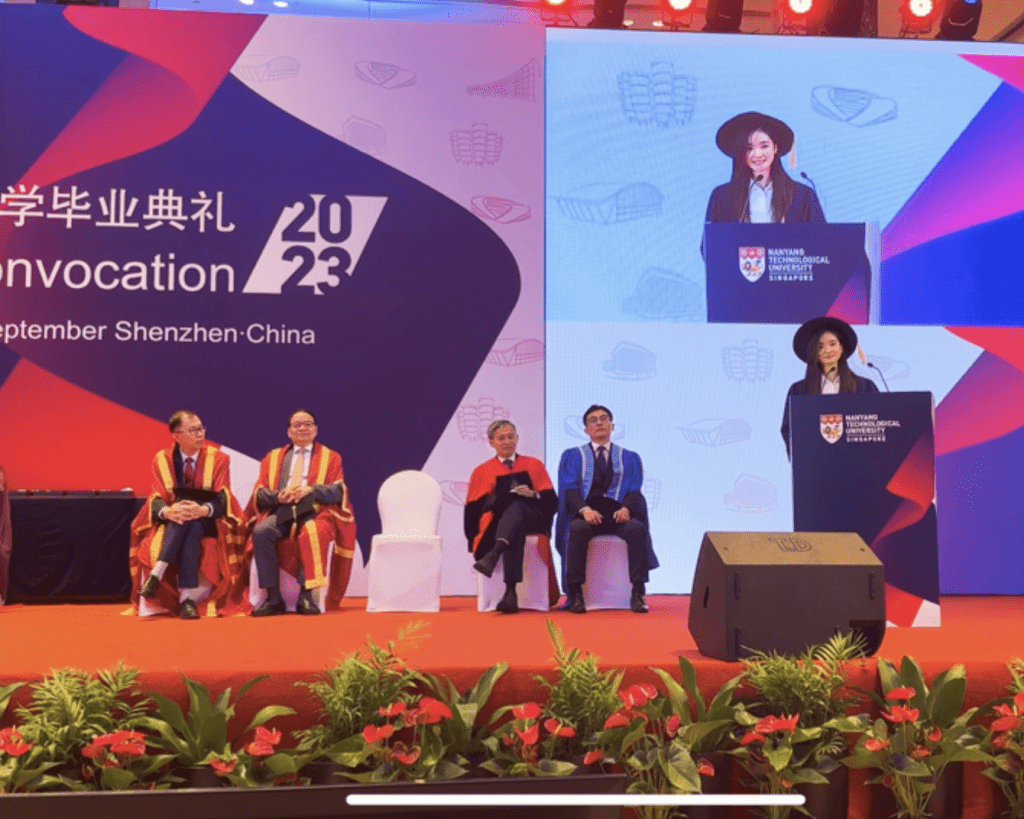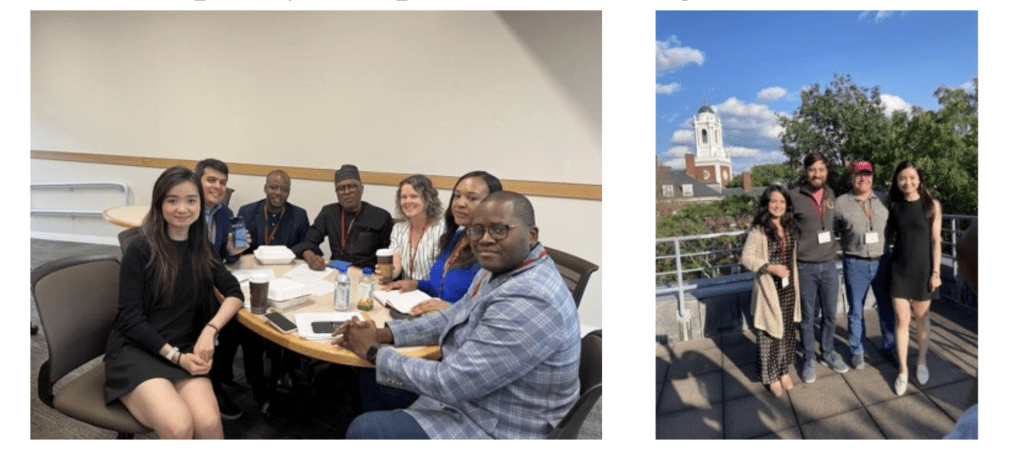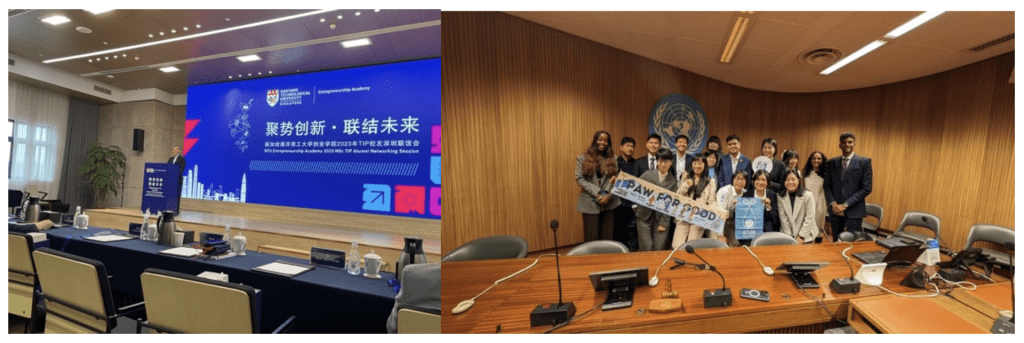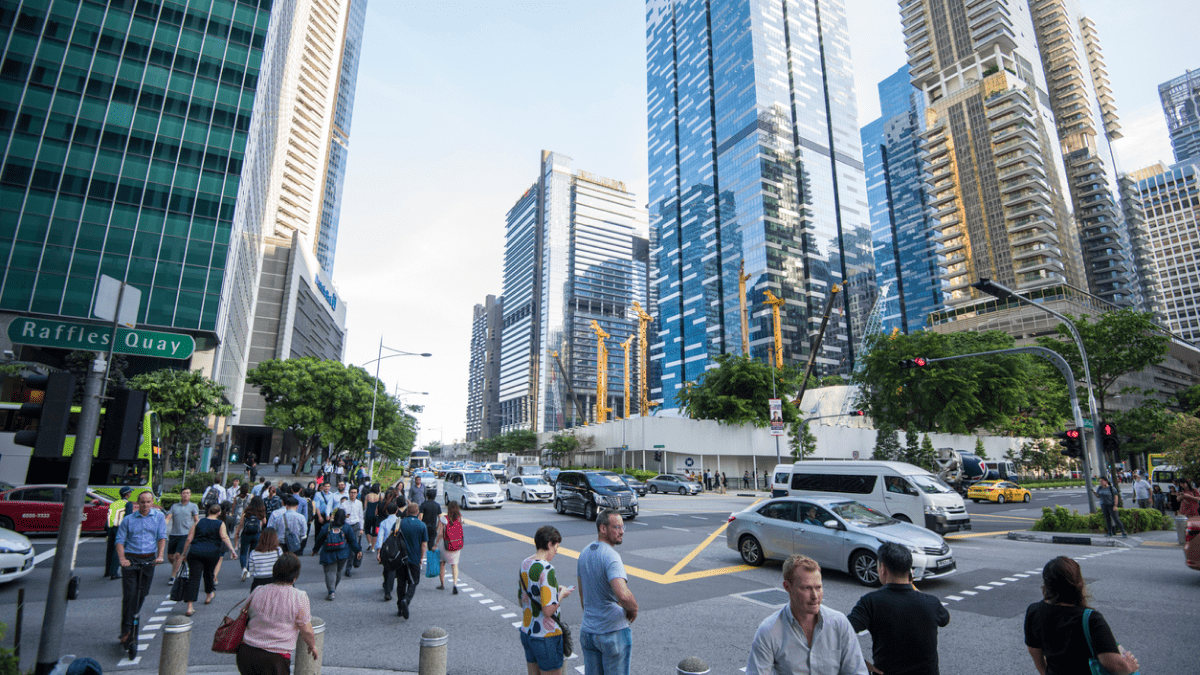Guest blog by Tingyu Wu, IPP’23
Embarking on this PDIA (Problem-Driven Iterative Adaptation) program has been quite a ride, and it’s changed my life in unexpected ways. Let me give you some context—I’m not your typical politician or government official. By day, I’m a co-founder of a marketing consulting company, keeping busy with the usual corporate hustle. But beneath the surface, I’m deeply passionate about technology hardware products and social entrepreneurship.

During my university days in Singapore, I stumbled upon a problem that struck a chord with me. I noticed that young, innovative minds were struggling to get their ideas off the ground. They faced hurdles in gathering the resources needed to turn their visions into reality. This issue wasn’t just about wasted time and resources; it was holding back the potential for fresh, innovative ideas to thrive in a city with so much promise.
With eight years of experience in the technology industry and a role as a mentor to budding entrepreneurs at our university, I felt compelled to take action. I started working relentlessly to guide and support these young entrepreneurs, providing them with the tools they needed to kickstart their projects and invigorate the local entrepreneurial scene.
Then, as if by fate, I stumbled upon this course at just the right time. Over the past five months, I’ve been deeply involved in engaging with Singapore’s youth. I’ve been seeking approval and support from the university, local organizations, and even the United Nations to create more opportunities for our young talents. This journey has been filled with fresh challenges, moments of inspiration, and profound personal growth, changing my perspective on what’s possible in the realm of policy and problem-solving.

My key takeaways from this course were:
Find the Real Problem & Root Causes: Instead of just treating the surface issues, it’s crucial to dig deeper and understand the root causes of complex challenges. This way, we can create solutions that truly make a difference.
Document Progress Regularly: Keeping a record of what we’ve learned and the connections we’ve made is a powerful tool. It helps us show that we’re making progress, even when we can’t achieve big results immediately.
Work Together: Collaboration is key. By working closely with Authorizers and colleagues, sharing ideas openly, reflect and iterate together and staying in touch, we can build strong support networks and get more done.
During this journey with the Youth Enabling Project, we’ve made significant progress and gained important insights. At the start, we struggled with limited support. We engaged with various stakeholders but resources were scarce.
In the second phase, we took a proactive approach, engaging our authorizers directly through meetings and events. This collaboration increased their involvement and guided our project.
By the third phase, our project had grown, thanks to participation in the UN social forum. We connected with more universities and gained additional resources. The youth we engaged with were inspired to excel in their social enterprises.

Throughout this journey, our commitment to transparent communication and building relationships transformed our project from a struggling initiative into a recognized one that impacted the lives of many young individuals. This experience reinforced the importance of engaging authorizers, fostering collaboration, and persistently pursuing progress in addressing complex challenges.
Engaging in the PDIA approach has profoundly influenced my problem-solving approach. It has equipped me with a structured method to address complex challenges effectively. In the future, I will apply these principles to any problem I encounter. I’ll focus on breaking down issues into manageable parts, continuously learning from my actions, and building strong relationships with stakeholders. Rather than seeking immediate, grand solutions, I will embrace the idea that small, incremental steps and learning are key to success. This patient, results-oriented mindset will be invaluable in addressing complex issues and fostering sustainable change.
Also, this approach is not limited to just work challenges; it has the potential to transform how I navigate life’s complexities and interpersonal relationships. By fostering an open-minded attitude and actively listening to others, I can better understand the root causes of conflicts and emotions, both in my professional and personal life. It has instilled in me the importance of remaining calm and rational when facing life’s problems. It encourages me to take a step back, analyze the situation, and address the underlying issues constructively. This newfound perspective will undoubtedly enhance my overall problem-solving abilities, making me better equipped to handle life’s hurdles and nurture healthier relationships with those around me.
There are three quotes that motivated me all the time I’d like to share with you
- Courage doesn’t always roar. Sometimes courage is the quiet voice at the end of the day saying, “I will try again tomorrow!”
- Don’t count the days, make everyday count.
- There are a lot of negative things in the world, there’s lots of terrible things that happening all over the world. Lots of problems that need to get solved, there’s lots of things that are miserable and kind of get you down. But life cannot just be about solve one miserable problem after another. Life needs things that inspire you that make you glad to be, to wake up in the morning, and be part of humanity. It’s time to go forth. -Elon Musk
I am immensely grateful for the opportunity to be a part of the IPP program and connect with remarkable individuals facing challenges worldwide. This journey has opened my eyes to diverse perspectives and unique challenges from all corners of the globe. It’s heartening to witness the collective determination to bring about positive change in our respective countries and cities. Here’s to a future filled with meaningful progress and transformative change.
This is a blog series written by the alumni of the Implementing Public Policy Executive Education Program at the Harvard Kennedy School. 47 Participants successfully completed this 7-month hybrid program in December 2023. These are their learning journey stories.
